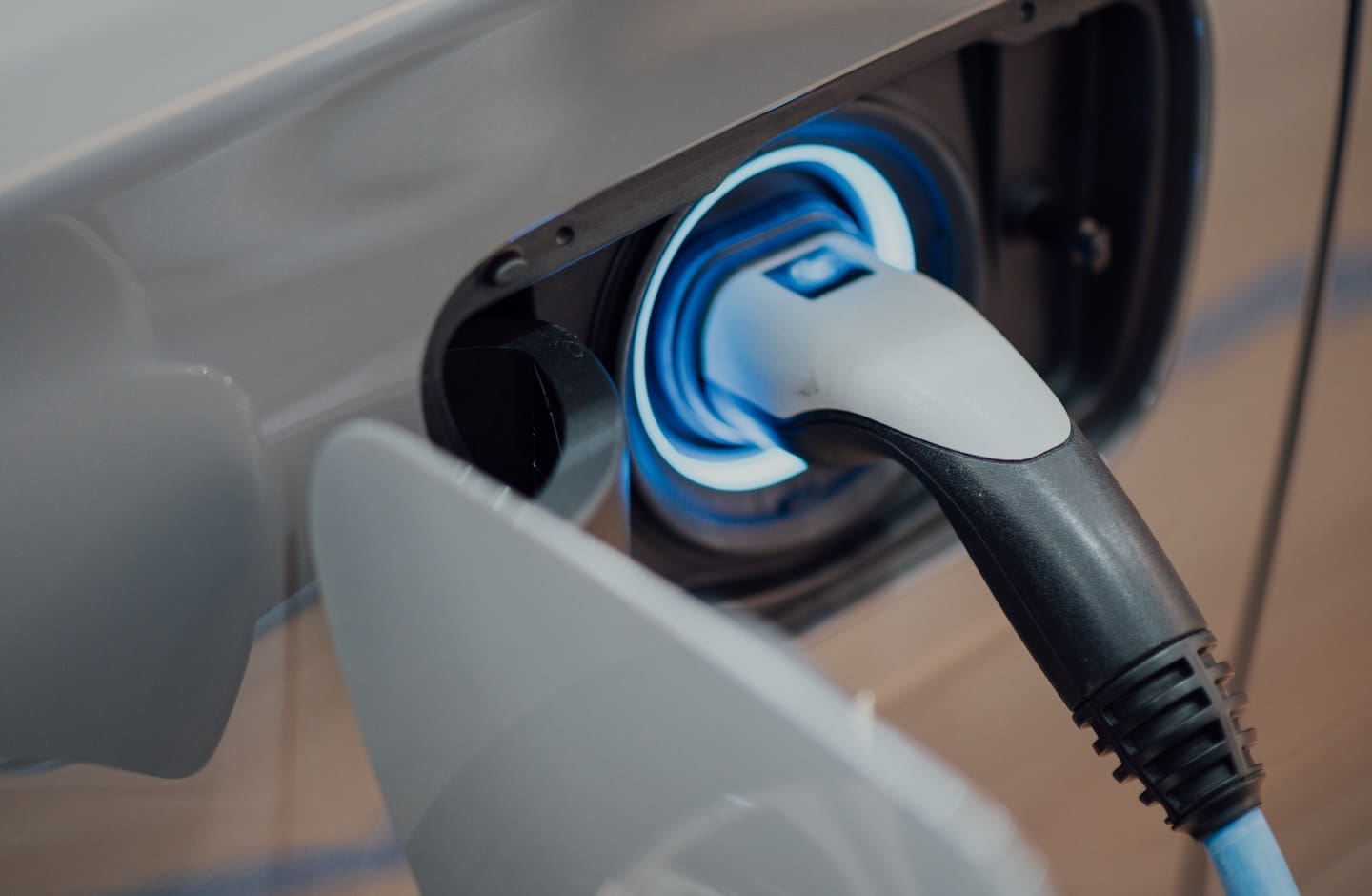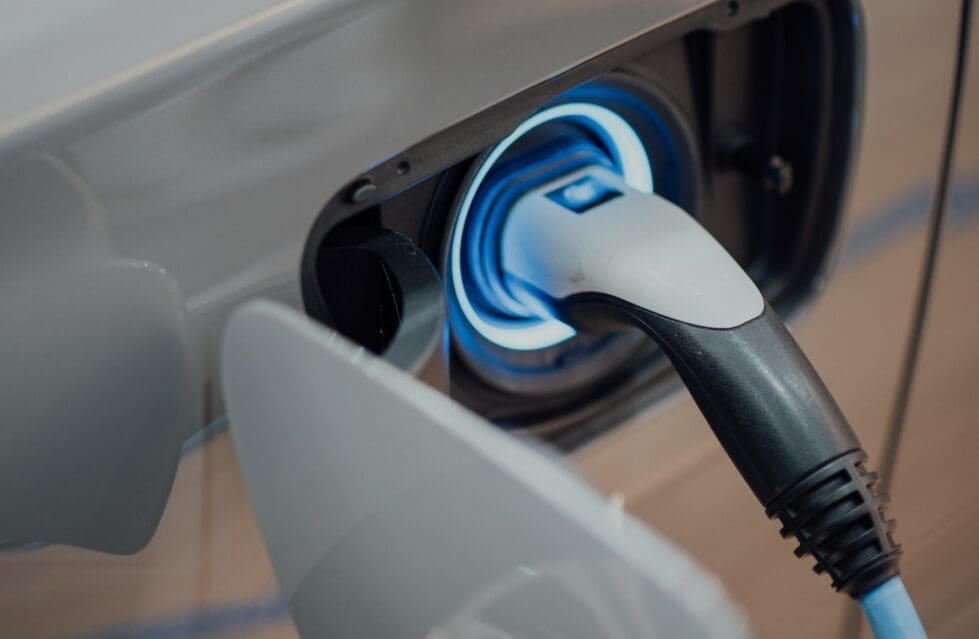

The bills offer rebates for electric vehicles and require some school buses to be electric, too. (Unsplash photo by Chuttersnap)
On Tuesday, the Senate passed with five bills that relate to the environment, with Republicans offering some resistance, and a budget that had less opposition.
House Bill 99, sponsored by Rep. Debra Heffernan, D-Brandywine Hundred South, would require that Delaware meet certain emission reduction requirements, getting to zero net emissions by 2050, and create climate change officers within all nine departments to help the state achieve these goals.
The bill, which doesn’t require a fiscal note, passed 15 to 5 and now heads to Gov. John Carney for his signature.
House Bill 12, sponsored by Rep. Sophie Phillips, D-Christiana, would offer a rebate of up to $2,500 for someone purchasing an electric vehicle in Delaware and up to $1,000 for someone purchasing a plug-in hybrid in the state, leading to a fiscal note of $2 million for the 2024 fiscal year.
The bill passed 16 to 4 and now heads to Carney for his signature.
House Bill 10, sponsored by Heffernan, would require that 30% of the state’s school bus fleet be electric by 2030, with estimates of costs to be around $250,000 per bus and the charging infrastructure costing an additional $75,000 per bus. Since the state buys about 50 buses a year, the fiscal note for the bill estimates it will cost $975,000 in the 2025 fiscal year and $1,625,000 in the 2026 fiscal year.
It passed 15 to 5 and now heads to Carney for his signature.
Senate Bill 51, sponsored by Sen. Trey Paradee, D-Dover, would ban the use of polystyrene containers in restaurants, fire companies and nonprofit organizations, along with single-use plastic straws, coffee stirrers and cocktail and sandwich picks.
The bill, which doesn’t require a fiscal note, passed 15 to 5 and now heads to Carney for his signature.
House Bill 11, sponsored by Heffernan, would require that new buildings with a foundation of 50,000 square feet or greater be built to be compatible with solar panels.
The bill, which doesn’t require a fiscal note, passed 16 to 4 and now heads to Carney for his signature.
Debating climate change
Sen. Stephanie Hansen, D-Middletown, said that climate change is a growing issue, and House Bill 99 will help.
“This is a pivotal time for our state, and our vote today will determine how engaged we are in doing our part to secure a livable and sustainable future for humanity on a global scale,” Hansen said. “We are ready and we are able. We will do this because we are actively, deeply invested in our future. We understand the cost of inaction and we care about what tomorrow brings.”
Sen. Dave Lawson, R-Marydel, asked Hansen several questions about the specifics of an Intergovernmental Panel on Climate Change report that she referenced and its conclusions about the right amount of carbon dioxide emissions.
“The report that you referenced” is 0.4%,” Lawson said.
The specific number doesn’t matter, Hansen replied, but rather that the report outlines that it’s an issue.
“What matters is the fact that because this number is higher than it has been in the past, because it is higher, it is trapping heat in our atmosphere and is causing weather-related problems, flooding, related problems,” Hansen said. “It’s causing dire consequences, and so we need to reduce it.”
Senate Majority Leader Bryan Townsend, D-Newark, said just because the number seems small doesn’t mean it isn’t not a problem.
“Blood alcohol content is in a fraction of a percentage,” he said, but “a BAC measurement [could be] lethal.”
Sen. Eric Buckson, R-Dover, said that he has concerns about the bill because Delaware has a small impact on climate and that it would create more red tape.
“I’m not going to support a bill which has the real potential to economically harm Delawareans,” he said. “When we’re not in control of our neighboring states, and which has the very real potential to take the people out of the decision. Take this General Assembly away from the decision-making process and handed over to bureaucracies. That is a very fair concern.”
Hansen contended that’s a defeatist approach. “What if everyone in Maryland said well, ‘Why should we do anything if Pennsylvania’s not doing so? If everyone else in the world said ‘I’m not going to do anything until everyone else in the world does their part?’ What kind of thought processes is that?” she said. “Nothing would get done. … Everybody has a stake in this. You breathe every day.”
$5.6 billion budget bill
The Senate also passed House Bill 195, sponsored by Rep. William Carson, D-Smyrna, which delineated how the state’s $5.6 billion budget, up from $5 billion last year, will be spent over the next fiscal year, which starts July 1.
The bill, which passed 17 to 3, and previously passed the House 32 to 8, now heads to Carney’s desk for his signature.
Townsend said that the bill, among a myriad other things, will give raises across the board to state employees.
“For the second year in a row, state employees will receive a pay increase ranging from 3% to 9%,” he said. “Education employees will receive a minimum 3% raise, but teachers, nurses etc., non-administrator classroom staff will receive an additional 6% salary supplement. … Our focus this year is really taking care of our employees and trying to fill those empty positions in some really critical areas of need.”
Buckson said he’s supporting the bill because, at least this year, it does a good job of keeping a cap on spending while still addressing the areas that they need to spending.
“This budget protects our seniors, disabled, our most vulnerable. It recognizes our educators, first responders, including healthcare at our most acute level,” he said. “This spend is big, but based on the benchmarks, budget reserves and the control of future spending, I believe we’re situated … to do what we need to do … and still manage the challenges that will come to us next year.”
Share this Post



